
Looking for a natural solution for your sleep problems? You may take a look at using herbs to help you sleep, but they only work if you target the actual problem – that is, the reason why you can’t sleep in the first place. That may seem obvious, but it’s more complicated beneath the surface.
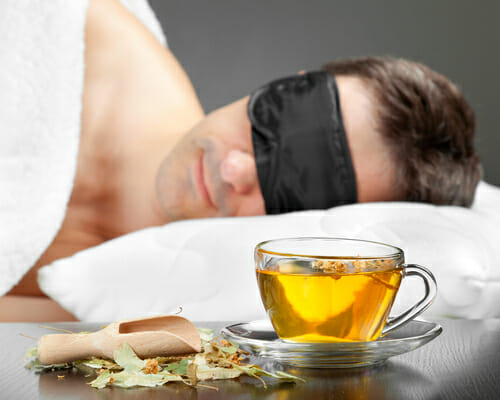
Sleep issues may stem from something as simple as needing the right mattress. Some people, especially side-sleepers, may need a particular type of pillow to improve their sleep. However, there may be other issues at play as well.
Aging alters our sleep patterns, as do some medical conditions. Anxiety can also disrupt sleep, and many find that a weighted blanket is one thing that helps. Stress, depression, and hormonal imbalances can all interrupt your slumber as well. If depression is an issue, you might look at St. John’s wort, for example. For stress, chamomile and ashwagandha may help. If hormonal issues are the problem, herbs that target specific hormones are your best bet.
What Are the Right Herbs To Help You Sleep?
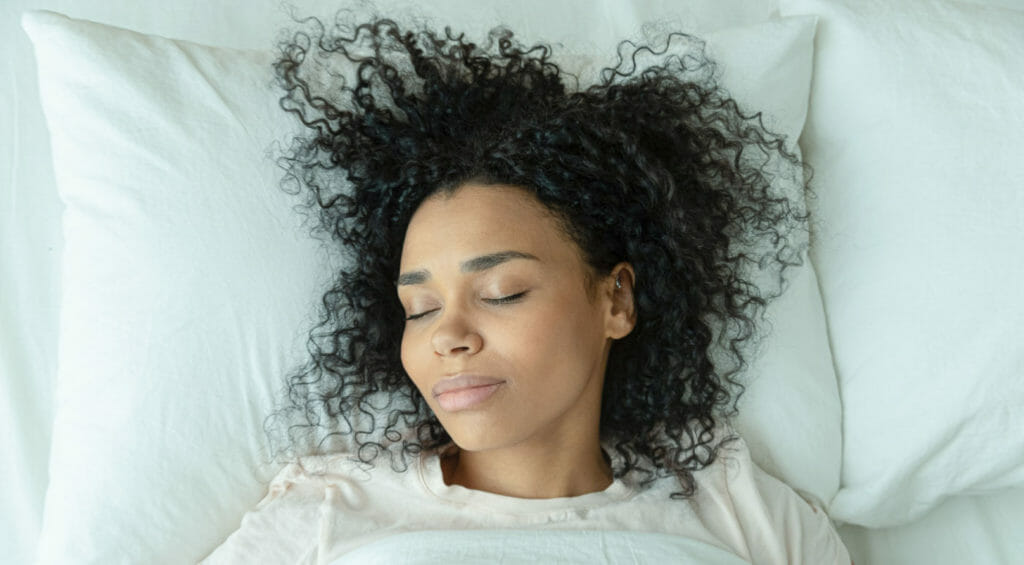
There are many herbs with a calming influence that can help promote a good night’s sleep. Those commonly prescribed as natural sleep aids include valerian (Valeriana officinalis), passionflower (Passiflora incarnata), skullcap (Scutellaria lateriflora), hops (Humulus lupulus), and chamomile (Matricaria recutita). Plants in the mint family (Lamiaceae) are well known for their sedative properties too.
There are many herbs, including lavender, lemon balm, catnip, holy basil, and sweet marjoram (also skullcap) that are traditionally used to treat nervous complaints. Other herbs that have sleep-inducing qualities include linden and California poppy. The first five, however, are probably the most studied of the lot.
Valerian
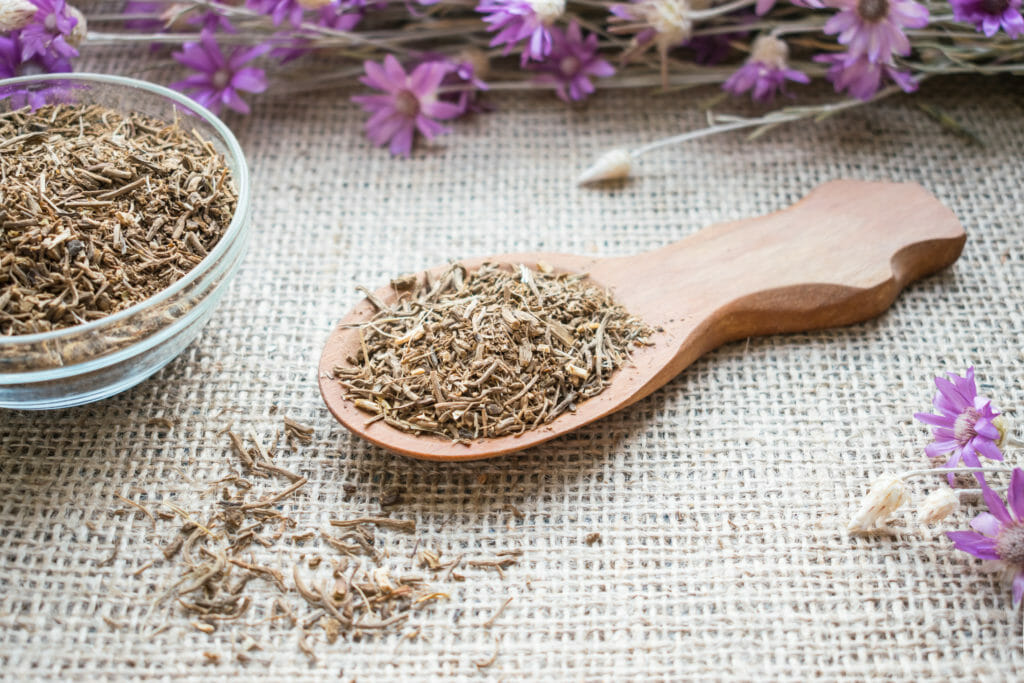
Several double-blind clinical studies have corroborated valerian’s ability to improve sleep quality, although overall the evidence is contradictory. A systematic review published in 2007 concluded that valerian is safe to use, but it’s not effective as an herb to help you sleep. A subsequent review of randomized clinical trials, published in 2010, revealed that people who took valerian did report better sleep, but those results were not supported by objective measures.
Despite the results of those studies, valerian may actually be one of the most effective herbs to help you sleep. Of those studies that were in favor of valerian, one in particular stands out. In this double-blind placebo-controlled trial involving 121 people, the participants who took valerian tincture one hour before bed showed a marked improvement by the end of the trial compared to those who took a placebo. The valerian did not work right away, though. It took a couple of weeks of taking the herb regularly before the herb kicked in.
This suggests valerian is not a quick-fix remedy and should be taken consistently for several nights before results are seen.
Or it may be paired with other herbs to help you sleep. In vitro studies suggest that a hops-valerian mixture triggers sleep-inducing activity by binding and activating adenosine, melatonin, and serotonin receptors. In a pilot study of 30 people, the hops-valerian combination did indeed improve overall sleep.
Passionflower and Skullcap
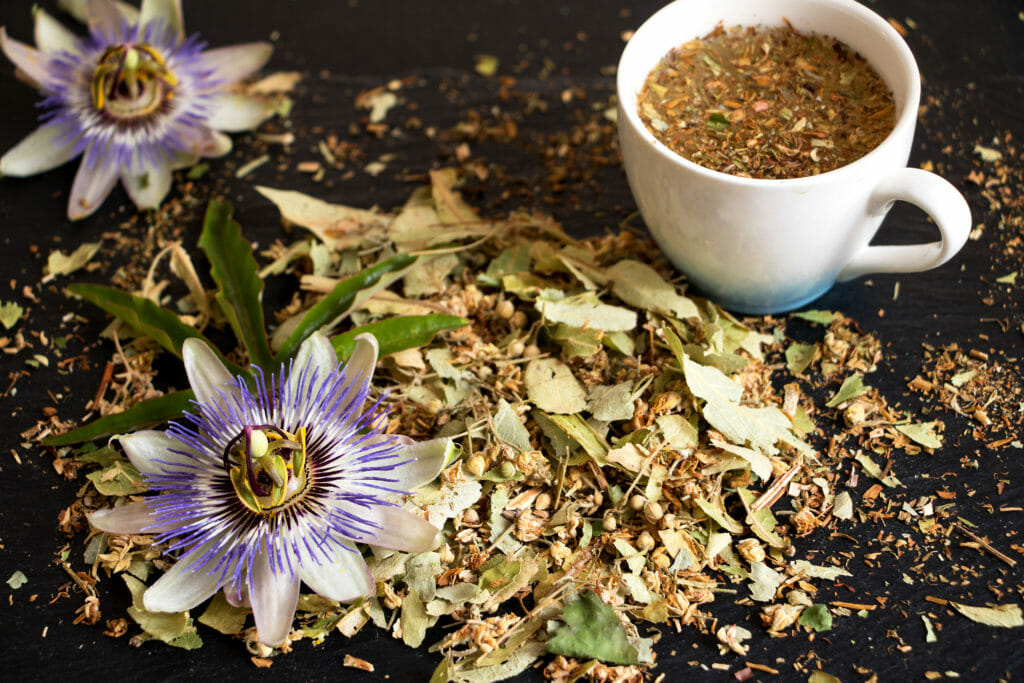
Both these are effective as herbs to help you sleep. Skullcap is classed as a relaxing nervine and is often used by medical herbalists to relieve stress and anxiety. It has anxiolytic properties and is also useful in shutting down a busy mind at night.
Passionflower’s relaxing effects are also well known. A 2011 double-blind, placebo-controlled study showed a significant improvement in sleep quality when participants consumed passionflower tea compared with a placebo.
Of the two, passionflower is the better tasting, which may be why these two herbs are often taken together. Skullcap, on its own, is not so pleasant.
Hops
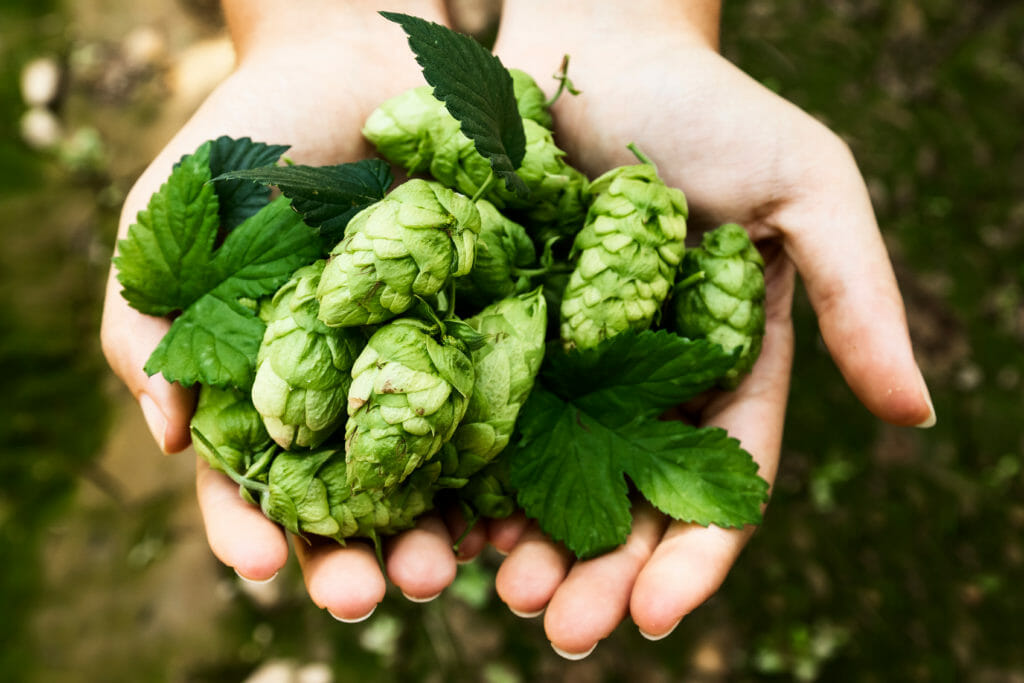
Everyone knows that consuming enough beer can make you sleepy, but is it the alcohol or the hops? Hops are a mild sedative that have traditionally been used for anxiety and insomnia. To confirm their effectiveness, a study was undertaken on the sedative effect of non-alcoholic beer consumed at dinnertime. Actigraphy results did indeed confirm improvement of sleep quality. The participants also reported a reduction in anxiety.
That doesn’t mean you have to drink beer — alcoholic or non-alcoholic — to reap the benefits of hops. Dried hops can be taken in tea or tablet form, on its own or combined with other herbs to help you sleep.
Chamomile
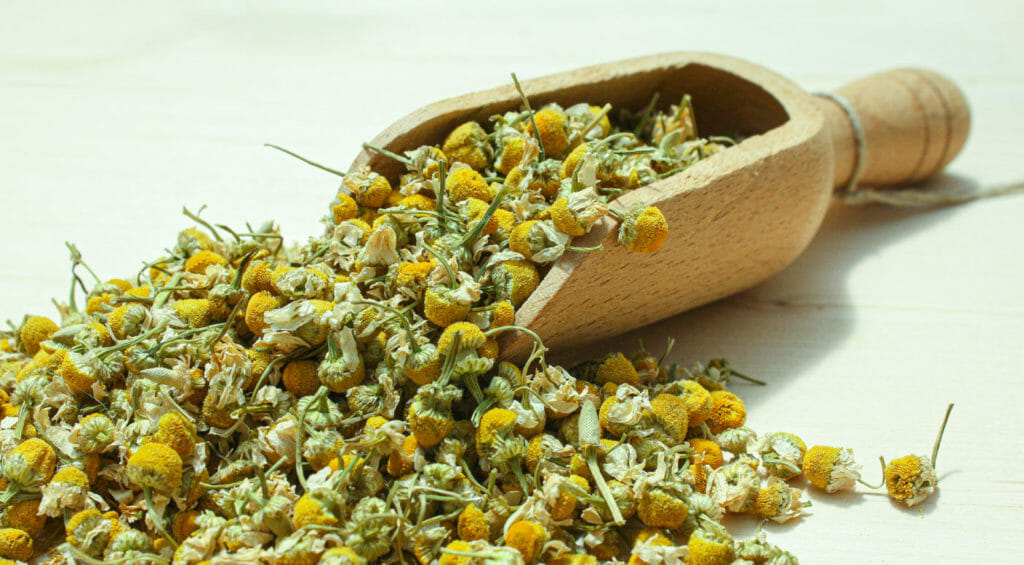
German chamomile (Matricaria recutita syn. M. chamomilla) is the herb that’s consumed orally, as opposed to Roman chamomile, (Chamaemelum nobile), which is typically used in aromatherapy. Studies demonstrate its sedative properties and effectiveness in aiding sleep and reducing anxiety.
Chamomile exhibits benzodiazepine-like hypnotic (sleep-inducing) activity, has anti-inflammatory properties, and its antispasmodic nature makes it useful in treating digestive tract issues. Although chamomile tea has a reputation for aiding sleep, there are no double-blind randomized studies to support this.
However, one quasi-experimental clinical trial found that the consumption of chamomile daily for a four-week period by elderly patients improved sleep quality significantly, compared to those patients not taking chamomile. The patients took capsules containing 400mg of chamomile twice a day, after lunch and after dinner.
Another study involving new mothers in 2016 showed that those who drank chamomile tea daily for two weeks slept better and had fewer symptoms of depression than those who didn’t consume the tea.
Conclusion
So, are there herbs to help you sleep? Absolutely, if taken in the correct manner and for the right reasons. But, just because herbs are natural doesn’t mean they can’t harm you. DISCLAIMER: ALWAYS check with a health professional before consuming herbs, as some herbs may interfere or interact with existing medications, or should not be taken if pregnant or lactating.